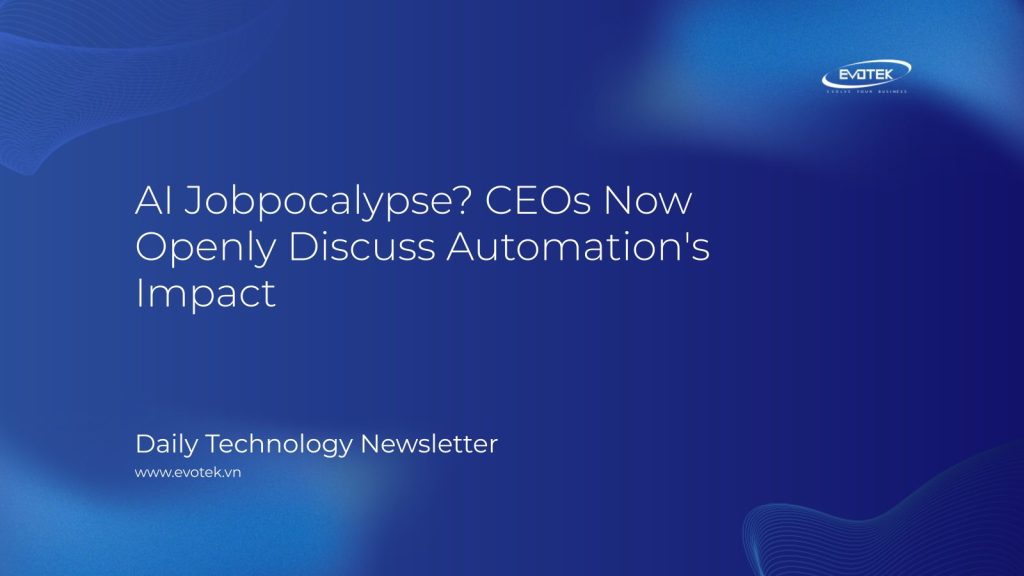Whispers in the boardroom are becoming shouts from the rooftop. CEOs are increasingly vocal about the potential for artificial intelligence to dramatically reshape the workforce, with some even predicting significant job displacement.
For years, discussions around AI have centered on its potential to augment human capabilities, improve efficiency, and create new opportunities. However, a more sobering narrative is emerging as AI technologies become more sophisticated and widely adopted. The shift is subtle but unmistakable: from “AI will help us do our jobs better” to “AI will do our jobs.”
What’s driving this change in perspective? Several factors are likely at play:
- Rapid advancements in AI: AI models are now capable of performing tasks previously thought to require human intelligence and creativity.
- Cost pressures: Companies are constantly seeking ways to reduce expenses, and AI offers the potential for significant labor cost savings.
- Increased accessibility of AI tools: AI solutions are becoming more readily available and easier to implement, even for smaller businesses.
While the extent of potential job losses remains uncertain, the conversation is undeniably shifting. The focus is no longer solely on the benefits of AI, but also on the challenges and potential societal impacts of widespread automation. This includes discussions about:
- The need for workforce retraining and upskilling: Preparing workers for the jobs of the future requires significant investment in education and training programs.
- The potential for increased income inequality: If AI disproportionately benefits highly skilled workers, it could exacerbate existing inequalities.
- The role of government in managing the transition: Policymakers need to consider how to mitigate the negative impacts of AI and ensure a fair and equitable transition.
The coming years will be crucial as businesses, workers, and policymakers grapple with the implications of AI. The quiet part is out in the open: AI’s impact on jobs will be profound, and we need to prepare for it.
Keywords: Artificial Intelligence, AI, Automation, Job Displacement, Workforce, Retraining, UpSkilling, Income Inequality, Technology, Business, CEOs

 日本語
日本語 한국어
한국어 Tiếng Việt
Tiếng Việt 简体中文
简体中文